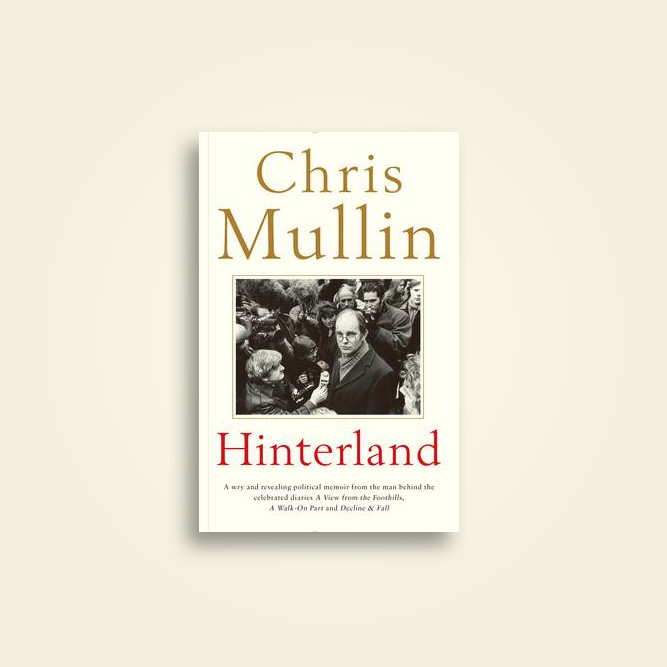I’ve been enjoying Hinterland, the memoir of former MP and Minister, Chris Mullin in the last few weeks, so it’s reminded me of this post I wrote in 2009 after reading the first volume of his diaries.
I’ve always highly recommended Mullin’s diaries for anyone understanding how Parliament really works (I’d also recommend Power Trip by Labour spin doctor Damien McBride, all of Alastair Cambells diaries and more recently Sir Craig Oliver’s Unleashing Deamons) .
The diaries are a little dated now as Mullin stood down in 2010 – his valedictory speech is one of the best Parliamentary speeches I’ve watched – but I still think they have lots of useful insight.
I’ve be reading the very enjoyable diaries of Chris Mullin MP over the Easter weekend, entitled ‘A View from the Foothills‘ they’re a great look at life somewhere down the ministerial pecking order.
Mullin was a junior minister at the Department for the Department of the Environment, Transport and the Regions (DETR), DFiD and the Foreign Office. It’d be fair to say that Mullin isn’t a great advocate of the lower rungs of ministerial responsibility, but reading the book provides some useful insights into what the work of junior minister is like. Something of tremendous use given that much of the engagement campaigners and lobbyist often have is with junior ministers.
A few key lessons stand out;
1. Junior ministers aren’t often particularly interested in the brief they have. Mullin, who before becoming a minister was a influential chair of the Home Affairs Select committee, implies he knew next to nothing about the environment when he started in that job, and kept up simply from reading the briefs provided to him.
So we shouldn’t be surprised when they’re not especially interested, Mullin seems to infer at times that the best issues to deal with are the ones that are trouble free, uncontroversial and mean that they won’t cause any embarrassment. Some lobby for the post they really want but most don’t get it.
2. Ministers sign lots of letters. Mullin talks about spending hours at the office often late at night signing letters from MPs. Few get mentioned, although he does despair when thanks to a Friends of the Earth campaign he has to sign over 500 letter. A good way to make a point, but perhaps a quick way to loose good will?
3. They spend lots of time giving speeches – part of the life of a junior minister is to go out and about around the country and give speeches to organisations which have some link. Mullin suggests most aren’t very well written and he was often embarrassed to deliver them. So the next time you hold an event and the minister doesn’t give the barnstorming speech you expect after watching too much West Wing, it probably isn’t their fault.
4. They don’t have huge amounts of access to the Secretary of State or the PM. This obviously depends on the department they’re posted to (so access seems to be better at the Foreign Office under Jack Straw than at DETR under John Prescott) but most seem only to have access to the Secretary of State at weekly departmental meeting and occasional rushed conversations here and there. Generally Mullin doesn’t give the impression that they get to set a departments agenda, this comes from the Secretary of State (or often even higher up government).
5. They are advised to pick a few issues to change policy on – Mullin while at the environment and region chose try to deal with leylandii hedges, rent paid to absent landlords and getting away without a ministerial car. All valuable but hardly groundbreaking, and even then it was hard work navigating between special interests, civil servants and government priorities to make progress.
6. So much of politics is informal – from the diaries you get the impression that many decisions are made through quiet conversations in tea rooms, chats in the lobby, a call to a friend who is a friend with another minister or a written note slipped into a box.
7. MPs spend lots of time on the train! Mullin is often talking about catching the 20.00 back to Sunderland and bumping into this or that MP. I think my next campaign strategy is going to map the MPs my target might catch the train home with!
What it's really like as a Junior Minister
